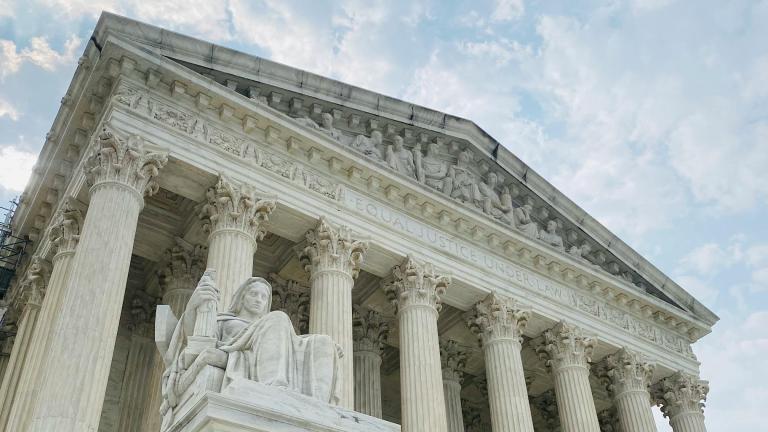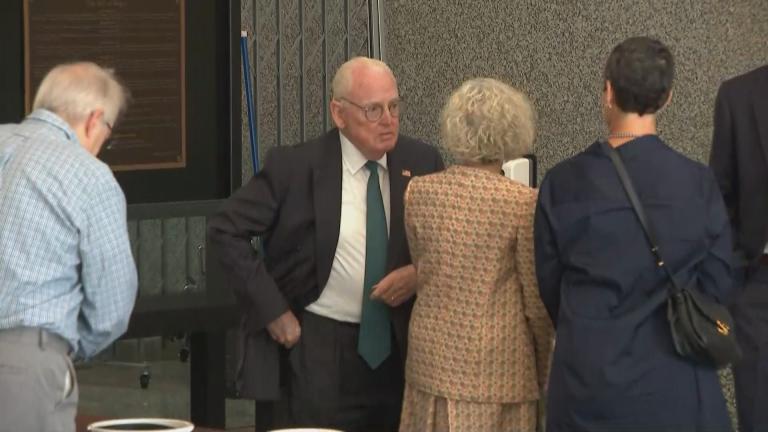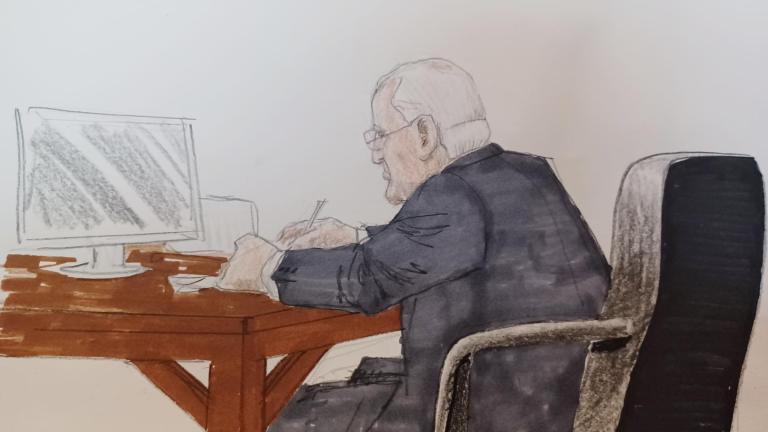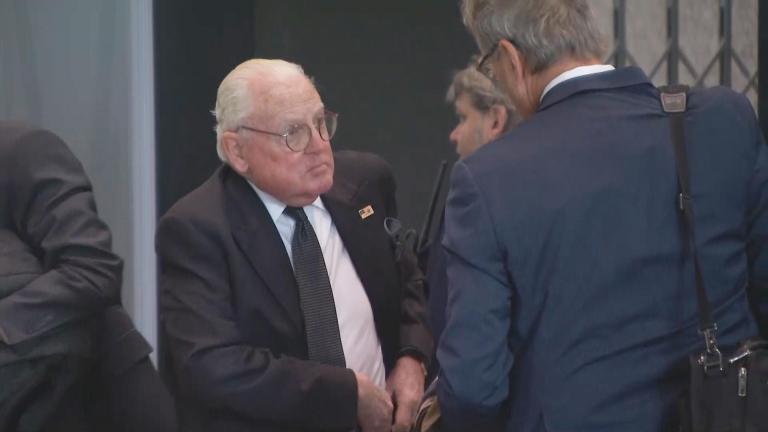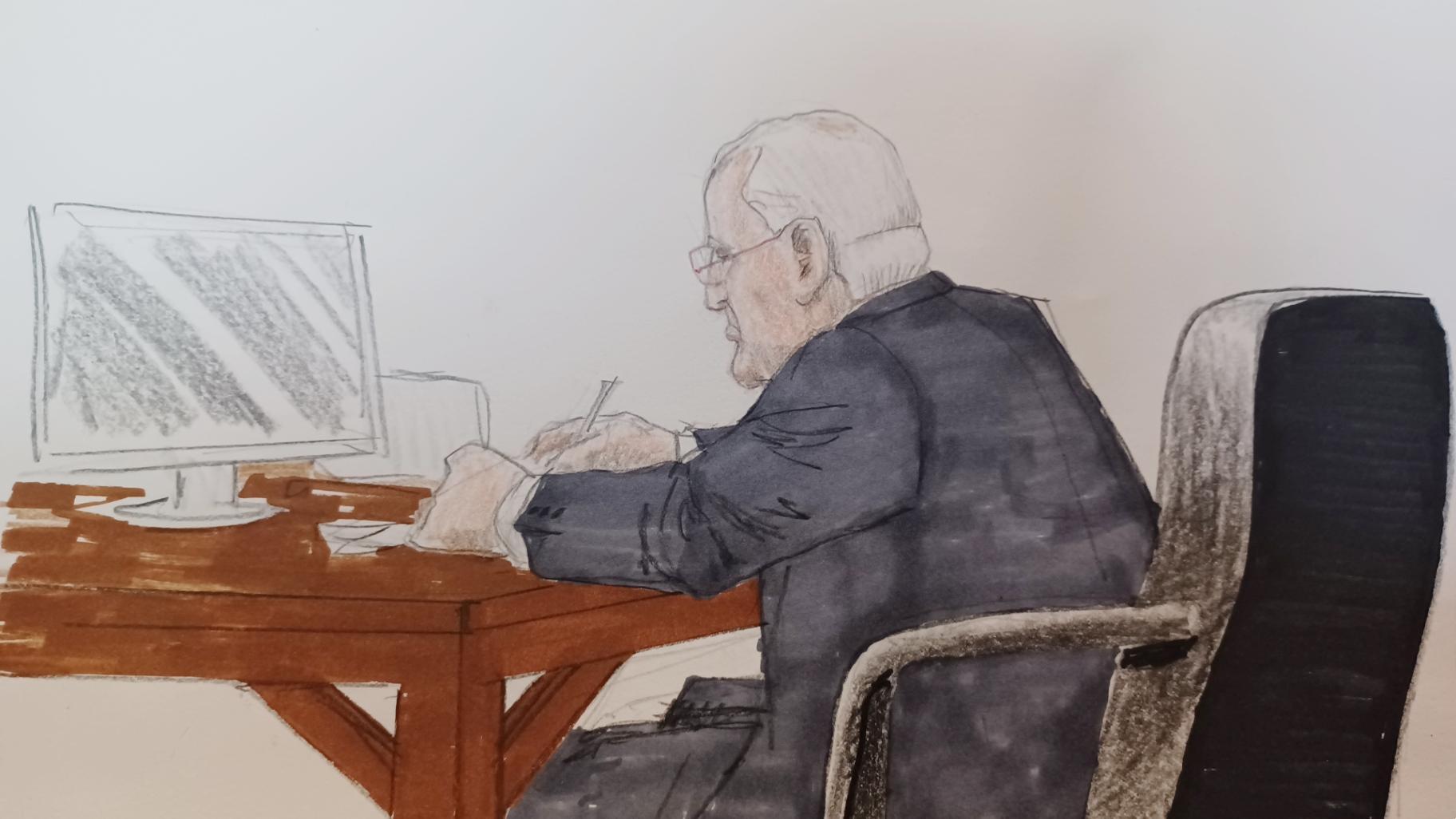 Former Ald. Ed Burke in federal court before U.S. District Court Judge Virginia Kendall on Dec. 5, 2023. (WTTW News)
Former Ald. Ed Burke in federal court before U.S. District Court Judge Virginia Kendall on Dec. 5, 2023. (WTTW News)
Former Ald. Ed Burke is seeking to delay his sentencing date following his conviction last year on racketeering, bribery and attempted extortion charges, citing a case that’s currently before the U.S. Supreme Court that’s already held up other major corruption cases in Illinois.
Burke’s attorneys on Friday filed a motion seeking to delay his upcoming June 24 sentencing date until sometime in mid-July if the Supreme Court has not yet ruled on an appeal filed by James Snyder, the former mayor of Portage, Indiana, who was convicted in 2021 of accepting a bribe.
The high court’s pending ruling in that case — which is expected later this month and could redefine federal bribery statutes — has already led to delays in the trial date of former Illinois House Speaker Michael Madigan and sentencing dates for the “ComEd Four,” who were convicted of conspiring to bribe Madigan.
Burke’s attorneys in their motion argue U.S. District Judge Virginia Kendall should “join the chorus of district court judges in the Northern District of Illinois” who have stayed the proceedings of those charged with or convicted of federal program bribery, unless the Snyder ruling is issued by June 20.
“By our count, no less than six separate cases have been so continued in this district alone, as set forth below,” attorneys Chris Gair, Charles Sklarsky and Joseph Duffy wrote in the six-page motion. “The same approach is appropriate here. Though no one can predict with certainty how the Supreme Court will ultimately rule, these district courts have determined that it is in the interests of all parties to wait for the forthcoming guidance.”
After a six-week trial that delivered a searing indictment of Chicago’s political system, a jury in December unanimously found that Burke repeatedly — and brazenly — used his powerful position at City Hall to force those doing business with the city to hire his private law firm, formerly known as Klafter & Burke.
Federal prosecutors have asked the court to sentence the 80-year-old to 10 years in prison. Burke’s attorneys are seeking a sentence of home confinement lasting approximately five years.
The Supreme Court heard oral arguments in the Snyder case in April. The justices’ ruling could determine whether the federal bribery statute criminalizes only bribery or also reaches gratuities — defined as payments in recognition of actions a state or local official has already taken or committed to take, without any quid pro quo agreement to take those actions.
The government argued the federal bribery statute bars officials from “corruptly” accepting payments with the intent to be influenced or rewarded in connection with their official duties. A government attorney told the court that Snyder’s attorneys are seeking to weaken that statute by holding that it is not illegal when an official corruptly solicits a payment with the intent to be rewarded, unless that person agreed to accept that payment before their actions.
The oral arguments largely centered around the definition of the word “corruptly.”
“It all seems to rest on the understanding of ‘corruptly,’” Justice Samuel Alito said at the time. “The person who gives a reward simply because that person is grateful may not know what the ethics rules are with respect to the recipient of this reward.”
Burke’s attorneys now argue the jury instructions defining that word in Snyder’s case mirror the definition given in the alderperson’s case.
The attorneys cited comments from the Supreme Court justices during April’s arguments in their motion, claiming “the conservative majority of the Court expressed they were troubled, if not outright disapproving, of the government’s definition and interpretation of the federal program bribery statute’s mens rea of ‘corruptly.’”
“... if the oral argument in Snyder is any indication, it does appear that the Supreme Court may well be preparing to rule that the jury instructions given in Snyder, which mirrored the instructions given here, were legally insufficient,” Burke’s defense team wrote. “Such a ruling by the Supreme Court could impact this Court’s analysis of the post-trial motions as well as the Court’s determination of an appropriate sentence.”
Kendall is expected to hear arguments on Burke’s motion Tuesday.
Heather Cherone contributed to this report.
Contact Matt Masterson: @ByMattMasterson | [email protected] | (773) 509-5431

